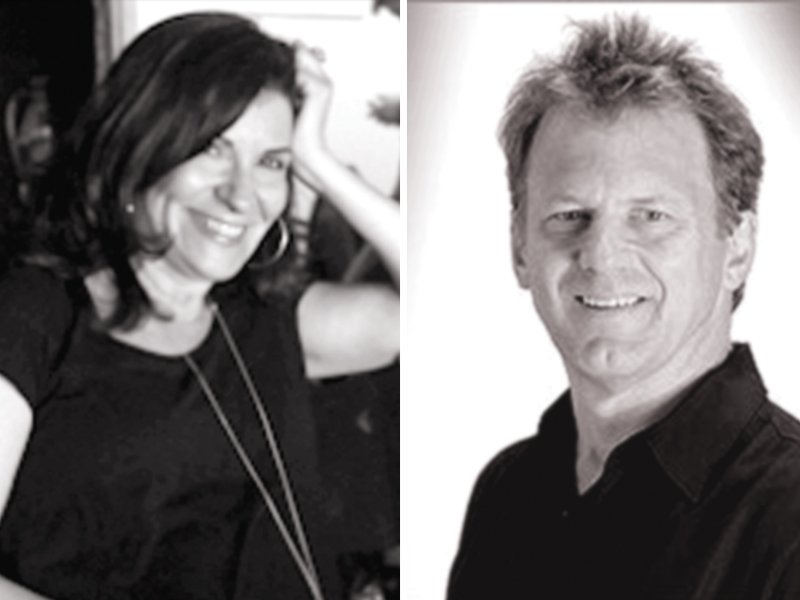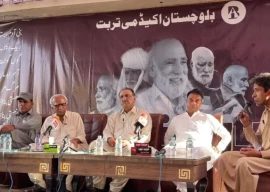
Each second counts, when you have only a minute to tell a story. But if you do it right, that is enough to make an impact. This seems to be the mantra of a diverse group of budding film-makers, who will be to showcasing their short films at the 60 Second International Film Festival that kick started in Islamabad on Thursday.
“It’s a complete mix of stories,” said Abrar ul Hassan, founder of the festival, while elaborating on the themes of the films, ranging from peace, interfaith tolerance, environment, education, innovation, creativity, comedy and gender-based violence.
According to Hassan, the films explore some of the pressing issues that no one is willing to talk about in the country. Some of these include real life stories from far-flung areas such as Kharan and Khyber Agency and have been made using just a cellphone.
Ted Braun and Marilyn Agrelo, renowned American film-makers, who have flown in for the festival, will be conducting a series of two-day workshops in Islamabad and Karachi on The Art of Cinematic Storytelling for emerging film-makers. The duo will also host roundtable discussions on the US film industry with film professionals, and speak about the power of documentary films to create social change at the festival.
Each workshop has four separate sessions on cinematic storytelling, documentary stories, social change across cinema and documentary-making and fiction.
In an exclusive interview with The Express Tribune, the duo shared insight into the universal language of moving visuals, the advantage of having technology at one’s disposal and what makes a good story.
Through the workshops, Agrelo hopes to inspire a new way of thinking to enable participants to want to share their stories. Meanwhile, Braun views the workshops and the duo’s visit as a whole, a celebration of the shared language of cinema that Pakistanis and Americans have in common. “One thing that I’m hoping the students will recognise in some sense, is what the particular stories they have to tell are, and the real value of those stories,” he said.
As people who have grown up in a film-going culture in America, the two film-makers are interested in exploring the resurgence of film-makers to reach audiences that are film-goers as opposed to television buffs in Pakistan. “This is a unique feature of Pakistani culture and a chance to participate with your film-makers in a resurgence of the Pakistani film-going culture is exciting,” he said.
On the other hand, Agrelo highlighted a “profound misunderstanding” that she said, exists between the American and Pakistani cultures since the American films being screened in Pakistan are big Hollywood productions “I think a great opportunity exists to familiarise ourselves with who we really are, not what our governments are, not what our politicians are but who we are as people and all the things we have in common. I would love to see more of that coming from this part of the world,” she said.
“One of the things that we’re looking forward to is engaging in discussion with emerging Pakistani film-makers on what social change might just mean to Pakistanis, because in addition to the political and social issues, films can engage people on social change on a very basic, human level,” Braun.
Film-making is expensive business, usually considered a hobby of the affluent. So what are the ways to break through the world of fancy gadgetry and create meaningful content? “This is a universal challenge for film-makers everywhere,” said Agrelo, adding: “In the US, even though it might be seen as a different situation, we struggle very much to get our films made.”

However, because of many factors including technology, it is becoming more and more possible, and in the grasp of everyday people to tell their stories. “This is a very exciting time for storytellers and documentary storytellers because we have iPhones, we have small cameras, we have the means to speak out in a way that was only for affluent people in the past,” she added.
Braun concurred, saying that the arrival of new digital technologies has enabled an essential democratisation of filmmaking process. “It’s possible now for most ordinary citizens in the US and I would imagine in Pakistan, to have at their disposal tools to make moving images that can be seen by thousands if not millions of people and that was not the case some years ago.”
When asked whether professional equipment is crucial to the filmmaking process, he replied: “Not as much as a good story. One of the most important things that will be a product of this workshop is that you have great stories to tell, don’t worry about the tools, worry about the story and make sure it moves you. If you have one story to tell, what would it be?”
Published in The Express Tribune, March 7th, 2014.
Like Life & Style on Facebook, follow @ETLifeandStyle on Twitter for the latest in fashion, gossip and entertainment.
COMMENTS (1)
Comments are moderated and generally will be posted if they are on-topic and not abusive.
For more information, please see our Comments FAQ





1732427746-0/Copy-of-Untitled-(2)1732427746-0-270x192.webp)











Welcome to Pakistan Ted and Marilyn! It is important to have more direct people to people contacts between the two countries as, let's be honest, governments of both countries don't really reflect the real aspirations of the people who are by and large desirous of friendship and peace